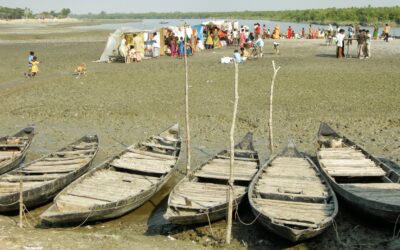Odams are sewn boats that were used for navigation in the Lakshadweep Islands. The islanders (except residents of Minicoy) used these sailing vessels for the transport of people and goods until the 1970s. Today, the odam is replaced by passenger vessels and ships. However, the memory of running an odam remains vivid in words of the islanders. They remember how they crossed the sea in the middle of rough weather to reach the mainland coasts of Kerala and Mangalore. They made sure that the odams returned by the onset of the monsoon and resumed their journeys only after the monsoons. The odams carried the copra, coir and shells that were traded with the mainland. Some oral accounts state that these sailing boats travelled from the Arabian Gulf to Malacca Straits. The odam ensured travel to home islands, sometimes guided by dolphins! The Malmis or the social group of navigators were adept in sailing the odam drawing from the oral lessons of their ustads (masters). The islanders claim that their navigation mathematics called the malikanakku is on par with today’s GPS system. The odams were made in pandialas (shipyards) by expert carpenters called bandai. The islanders of Chetlat are well-known for their carpentry skills. The inauguration of a new odam is associated with elaborate on-shore rituals. The owners of the odam often undertook the journeys themselves. Sailing the odam is a collaborative activity with division of labour over tasks such as handling the pulleys, cooking for passengers and determining the directions based on stars and the quadrant. Varadarajan says that Speed is referred to as thappu and is calculated by pulling sea water using a pulley. The maths (samaha) was performed with an instrument called kamanam (compass). A set of songs called kaumala were also popular among the navigators in their journeys. The odam even had a separate space for conducting Islamic prayers. Odams are classified based on their size and the number of people who are required to row them. Accordingly, there can be small odams which are two-oared, four oared, six oared or eight oared. The journeys out at sea are often recalled with overtones of courage, valor and shared kinship.

Nouko – Title for the Story
In the Sundarbans, the boat, or nouka or nouko is considered a person. One of the rules pertaining to collecting honey or firewood from the ...
Nouko / Nouka
Boat